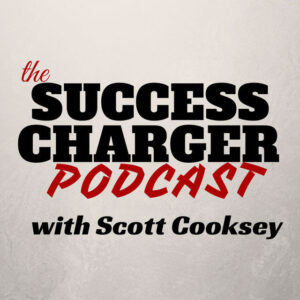Ep 19 – How To Beat Your Goals Every Time
Set goals. Make resolutions. Change. Do something different. Each of these concepts have a common thread. They are all about altering behavior and establishing expecations. Remember, I don’t think goal setting works (well, sort of…).
Perspective
Recently, the following quote was shared with me, and it sparked a conversation which got me thinking.
@LeadershipBEST: The best way to see Faith is to shut the eye of Reason ~ Benjamin Franklin
 When I read this, I immediately honed in on the aspect of the words “Faith” and “Reason” were both capitalized. My perception of the quote was that having faith (from a spiritual perspective) was exclusive of being able to apply reason when explaining the “un-explainable” or something one does not fully “understand”. Dianne Reilly(@LeadershipBEST) and I had a pleasant exchange regarding the quote, and I learned her perspective of the quote was less about the religious aspect of faith and more about “acceptance” of topics that affected us in life in a more general sense. By being open-minded to her thoughts, I began to think about how the quote was truly relevant to us both, even while the implied meaning of the exact same grouping of words (the quote) appeared to mean something very different to each of us. (Thanks again, Dianne, for the great back-and-forth!)
When I read this, I immediately honed in on the aspect of the words “Faith” and “Reason” were both capitalized. My perception of the quote was that having faith (from a spiritual perspective) was exclusive of being able to apply reason when explaining the “un-explainable” or something one does not fully “understand”. Dianne Reilly(@LeadershipBEST) and I had a pleasant exchange regarding the quote, and I learned her perspective of the quote was less about the religious aspect of faith and more about “acceptance” of topics that affected us in life in a more general sense. By being open-minded to her thoughts, I began to think about how the quote was truly relevant to us both, even while the implied meaning of the exact same grouping of words (the quote) appeared to mean something very different to each of us. (Thanks again, Dianne, for the great back-and-forth!)
Clarity
A few years ago, I was working on a customer-retention project for a client who was incorporating a newly purchased product line into his existing business structure as a new division. The client and I agreed to a list of expectations, assigned various performance incentives to our contract, and set a course of action with a lofty goal of 95% customer retention.
 The challenge we encountered, however, became a flash point upon discovery that I had relied on the implied quality of data, regarding the list of existing customers. Almost immediately, it became evident that there was a fair amount of missing data (phone numbers, addresses, and other customer specifics) which made it impossible to contact the customer (a metric we were relying on to trigger the performance bonuses). In my mind, to gauge the success rate to which we’d agreed, the base number used in the calculation should be adjusted to remove 1) a small group of specific customers the owner asked I NOT contact- as he wanted to reach out them himself, and 2) customers with completely missing data that neither a postcard, email, nor phone call were possible for contacting. Seems reasonable, right? Well, the client disagreed with my assessment. While we had agreed on the percentage, we were not explicit in discussing how to handle the poor data set in thecalculation of that percentage. Though we both sought success, a dispute over the calculation of success ultimately led to the early termination of the project, when the client refused to pay out the incentive for the achieved 95% goal, based on his view on how the ratio should have been calculated.
The challenge we encountered, however, became a flash point upon discovery that I had relied on the implied quality of data, regarding the list of existing customers. Almost immediately, it became evident that there was a fair amount of missing data (phone numbers, addresses, and other customer specifics) which made it impossible to contact the customer (a metric we were relying on to trigger the performance bonuses). In my mind, to gauge the success rate to which we’d agreed, the base number used in the calculation should be adjusted to remove 1) a small group of specific customers the owner asked I NOT contact- as he wanted to reach out them himself, and 2) customers with completely missing data that neither a postcard, email, nor phone call were possible for contacting. Seems reasonable, right? Well, the client disagreed with my assessment. While we had agreed on the percentage, we were not explicit in discussing how to handle the poor data set in thecalculation of that percentage. Though we both sought success, a dispute over the calculation of success ultimately led to the early termination of the project, when the client refused to pay out the incentive for the achieved 95% goal, based on his view on how the ratio should have been calculated.
Expectation
The term “goal” is often used as a substitute for “expectation” or “desired outcome”. If you think about it, desired outcome is really somewhat subjective. Have you ever heard of a boss, team leader, or company owner who was upset when a “goal” was exceeded by 50%? How about when a boss consistently demands “more”, but shouts disappointment when the sales team turns in a result $1 greater than last year. They thought they hit the goal. Often times the boss had something else in mind. From the other side, what about the media reaction to a sports team who quite handily whips their opponent on the field? The superior team wanted to win (the goal) but often find themselves blasted by critics for being unsportsmanlike. Confused? You should be. Expectations, however, should be clear. By both sides. Every time.
How to Beat Your Goals Every Time
There are two simple ways to beat your goals every time:
Sandbag –
Set your goals too low. Know what you are capable of (or worse, what you already know you will achieve) and set the bar right there. Doing this creates an artificial feeling of accomplishment that likely fills a short term desire of feeling successful, yet rarely delivers the long-term satisfaction and success truly successful people seek.
Focus on Changing Behavior-
To continually and successfully blow away your goals (and I’m talking about those big time expectations you have), the key is to focus on changing your behavior. Here’s what I mean:
Instead of setting an artificial goal:
- “I will beat last years number.”, or
- “I will lose 35 pounds this year”, or
- ”Sell 20% more than last year”
Focus on activity-based goals, instead:
- I will log my food intake daily, focusing on making healthy replacements in my diet.
- Each week, I will meet face-to-face with two new contacts.
- Attend one professional association meeting a month. Already attend one regularly? Commit to attending a second meeting each month, even if it rotates among several organizations. Just get out there. (And stuff some business cards in your pocket, because you’re going to be looking for new people to meet up with in those one-on-one, face-to-face meetings!)
- Commit to show up for work (even if you work from a home office or a local coffee shop) 15-minutes earlier each day.
- Strive to work out (walk, bike, run, weight train, SOMETHING) 30 minutes a day, at least 4 days/week.
You get the idea, right? By focusing on what you can DO (what you can control), you will achieve lofty goals beyond your wildest imagination (what you can influence by taking appropriate action).
So, let’s start a discussion below about one or more of the new activity-based goals you will be focusing on, starting right now! Go ahead, post your ONE BIG GOAL!
[Article originally posted by Scott Cooksey at CookseyConnects.com]







